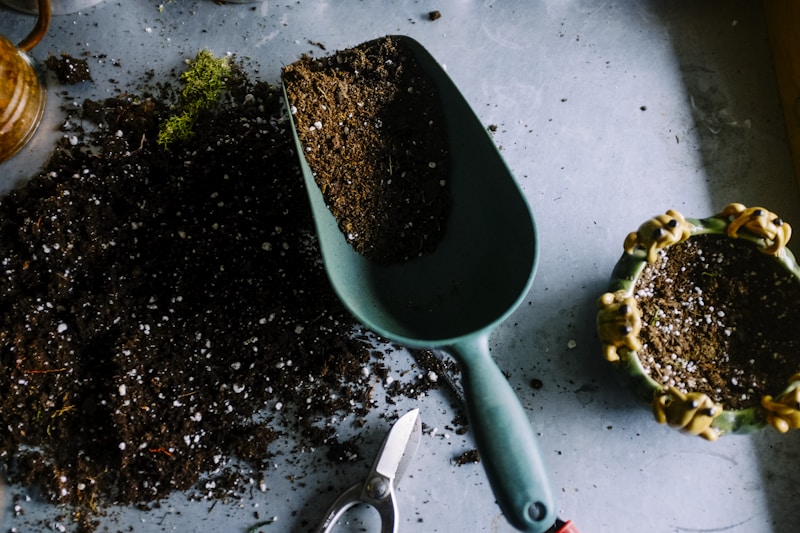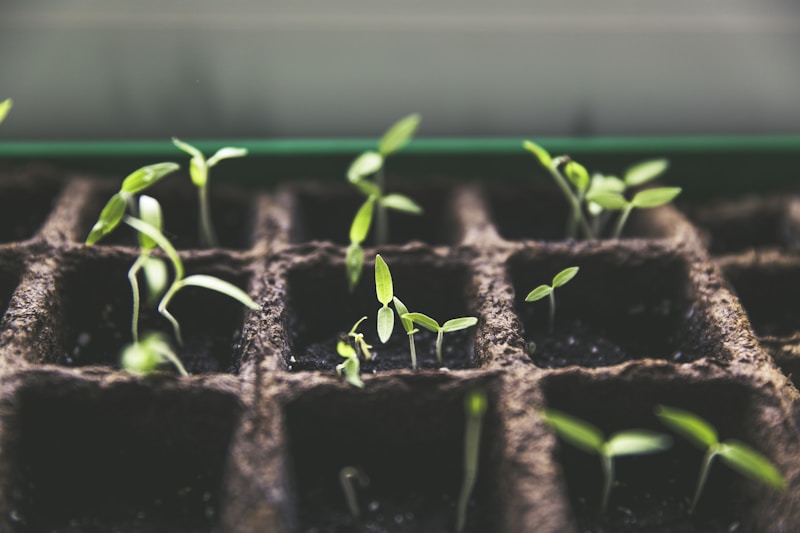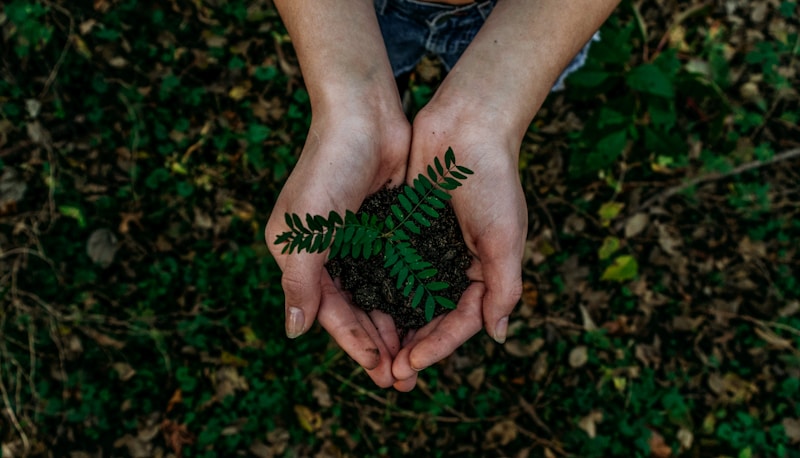Choosing the Right Compost and Soil Mix for Your Garden
🌿 Direct Answer
Direct Answer: Choosing the Right Compost and Soil Mix for Your Garden: Choosing the Right Compost and Soil Mix for Your Garden is easiest when you start with a clear goal, choose the right materials or ingredients, and follow a short, repeatable process. Focus on quality inputs, measure carefully, and make small adjustments after you test results. Store or maintain the final outcome properly so it stays effective, safe, and consistent over time, then refine your method as you gain confidence.
TL;DR: Start with a clean, well-draining base (native soil or quality potting mix) and add finished compost at 10–30% by volume for most beds. Use lighter mixes for containers and seedlings, richer but still airy blends for veggies and flowers. Check texture with a quick squeeze test, keep pH in a plant-friendly range, and avoid fresh manures or compost that smells sour or hot.
Context & common problems: why compost choice matters
Good compost feeds soil life, improves structure, and helps roots breathe. Problems show up when compost is unfinished (it steals nitrogen and overheats), too woody (ties up nutrients), too salty (burns seedlings), or used straight in pots without drainage. The right mix depends on where plants live: ground beds, raised beds, or containers.
"Understanding the fundamentals of choosing the right compost0 is crucial for any gardener looking to achieve sustainable results. The key is consistency and observation."
How-to framework: choose by bed and plant
1) For in-ground beds
- Goal: improve structure and steady fertility.
- Ratio: spread 1–2 inches of finished compost on top and mix lightly into the top few inches, or top-dress and mulch.
- Texture aim: crumbles when squeezed and breaks apart with a poke; no sludge, no dust.
2) For raised beds
- Baseline blend: roughly 40% high-quality topsoil + 40% airy bulk (coco coir, peat, or fine bark plus perlite/pumice) + 20% finished compost.
- Heavy native soil? Go lighter: increase airy bulk and compost, reduce dense mineral soil.
- Top-ups: add 1–2 inches of compost each season, then mulch.
3) For containers
- Use a true soilless mix: peat or coco + perlite/pumice + 10–20% sifted compost for nutrients.
- Never use garden soil straight: it compacts and suffocates roots in pots.
- Drainage check: water should flow freely; if not, add more perlite/pumice.
4) For seed starting
- Very light mix: fine peat or coco + perlite/pumice; add little to no compost to minimize salts and pathogens.
- Feed later: begin gentle feeding once true leaves appear.
Quality checks before you buy or use
- Look & feel: dark, crumbly, earthy smell; no sour or ammonia odor; few identifiable chunks.
- Bag labels: prefer composts listing inputs (e.g., plant waste) and testing data for maturity or salts.
- Squeeze test: moisten a handful and squeeze. It should clump, then break with a poke. Persistent muddy smear means too fine or wet.
- Germination jar test: mix compost 1:1 with a neutral mix and sow a fast seed (radish). Poor sprout rates or yellow seedlings can signal salts or immaturity.
pH & amendments: simple rules
- Most vegetables and flowers: mildly acidic to neutral pH is fine. Compost usually nudges soil toward that zone.
- Acid lovers (blueberries, azalea): use mixes built for acid-loving plants; include sulfur or acid peat per label and keep compost modest.
- Too alkaline or too acidic? Adjust gradually. Lime raises pH; elemental sulfur lowers it. Test again after changes.
Decision: quick chooser
- Ground beds needing life: 1–2 inches finished compost + mulch.
- New raised bed, general veggies: topsoil 40% + airy bulk 40% + compost 20%.
- Tomatoes/peppers in pots: soilless mix with 10–20% sifted compost + extra perlite for drainage.
- Seed trays: sterile, low-salt seed mix; feed later.
Troubleshooting fast
- Yellow, stunted seedlings: compost too “hot” or salty. Dilute with neutral mix, water through, and feed lightly later.
- Water sits on top: hydrophobic peat or compacted fines; rewet slowly, then blend in perlite/pumice or coarse bark.
- Mushrooms or sowbugs: common in rich mixes; remove caps and keep surface a bit drier between waterings.
- Funky smell/heat: unfinished compost. Let it cure in a ventilated pile before using around roots.
Tips & common pitfalls
- Tip: Mix by volume in a tote or tarp for consistency across beds.
- Tip: Mulch after composting to protect soil life and moisture.
- Mistake: Filling raised beds with straight compost. Roots need mineral structure and air space.
- Mistake: Relying on uncomposted manures near edibles.
- Mistake: Skipping drainage in containers; every pot needs holes and a free-draining medium.
FAQ
How much compost per season?
Most home beds do well with 1–2 inches as a top-dress or a total of 10–30% by volume when blending a new mix.
"Understanding the fundamentals of choosing the right compost1 is crucial for any gardener looking to achieve sustainable results. The key is consistency and observation."
Can I make my own?
Absolutely. Aim for a balanced mix of greens and browns, keep it moist like a wrung-out sponge, and turn or aerate as needed. Use when it’s cool, earthy, and crumbly.
Is peat or coco better?
Both lighten mixes and hold moisture. Coco is renewable but may carry salts; rinse if needed. Peat is consistent but not quickly renewable. Either needs structure from perlite/pumice or fine bark.
Advanced Techniques and Expert Methods
Mastering Precision
Seasonal Considerations
Scaling for Larger Batches
Sustainability and Environmental Benefits
Reducing Packaging Waste
Creating your own products dramatically reduces packaging waste from commercial alternatives. A single batch can replace dozens of store-bought containers, keeping plastic and cardboard out of landfills. Consider using refillable glass containers or repurposing existing jars to further minimize your environmental footprint. Many households report reducing their waste by 30-50% through DIY practices.
Controlling What Goes In
Commercial products often contain preservatives, stabilizers, and synthetic additives you might prefer to avoid. Making your own gives you complete control over every ingredient. You can choose organic, locally-sourced, or fair-trade components. Many people find their homemade versions work better because they're tailored to their specific needs rather than formulated for mass appeal.
Long-Term Cost Savings
While initial investments in equipment and supplies can seem significant, homemade alternatives typically cost 40-70% less than premium commercial equivalents. Buying ingredients in bulk further reduces per-unit costs. Within a few months of regular practice, most people recoup their startup costs and begin seeing substantial savings. These savings compound over years of continued practice.
Teaching Future Generations
Perhaps the greatest benefit is the knowledge and skills you develop and can share. These techniques have been passed down through generations, connecting us to traditional wisdom while adapting to modern needs. Involving children in age-appropriate projects creates lasting memories and equips them with valuable self-sufficiency skills for their futures.
Quick Comparison Guide
Use this comparison to understand the key differences between methods and choose what works best for your situation:
| Aspect | Beginner Method | Advanced Method | Time Required |
|---|---|---|---|
| Preparation | Simple, minimal equipment | Specialized tools needed | 15-30 minutes |
| Processing | Basic technique | Precision required | 1-2 hours |
| Yield | Moderate quantity | Higher output | Variable |
| Shelf Life | 2-4 weeks | 3-6 months | N/A |
| Skill Level | Beginner friendly | Experience helpful | N/A |
Sources
- Extension Psu — Soil Compaction And Tillage Management
- Njaes Rutgers — Guide and Resources
- Extension Umn — Composting Home
- Ucanr — 403643.pdf
- Oregon State Extension — Using Compost Yard Garden
Conclusion
Choose compost and soil like you choose good tools: finished, clean, and fit for the job. Keep mixes airy, add compost in sensible amounts, check texture and drainage, and protect your living soil with mulch. Plants grow easier when roots can breathe and biology is fed.
Practical Applications and Real-World Uses
Understanding Choosing the Right Compost and Soil Mix for Your Garden opens up numerous practical applications for everyday life. No matter your experience level just starting out or an experienced practitioner looking to refine your skills, these real-world applications provide valuable opportunities to put your knowledge into practice.
Many enthusiasts have found that incorporating Choosing the Right Compost and Soil Mix for Your Garden into their daily routines leads to significant improvements in both efficiency and satisfaction. The key is to start small, focus on the fundamentals, and gradually expand your scope as you become more comfortable with the techniques involved.

One of the most rewarding aspects of mastering Choosing the Right Compost and Soil Mix for Your Garden is the ability to share your knowledge with others. Teaching and mentoring not only reinforces your own understanding but also helps build a community of like-minded individuals who can support and inspire each other.
Troubleshooting Common Challenges
Even experienced practitioners occasionally encounter challenges when working with Choosing the Right Compost and Soil Mix for Your Garden. Understanding these common issues and their solutions can save considerable time and frustration while helping you achieve better results.
One frequent challenge is maintaining consistency over time. Many people start with great enthusiasm but struggle to maintain momentum as the novelty wears off. The solution is to establish a regular routine and set realistic, achievable goals that keep you motivated without feeling overwhelmed.
Another common issue involves adapting techniques to suit individual circumstances. What works perfectly for one person may not be ideal for another due to differences in environment, resources, or personal preferences. The key is to remain flexible and willing to experiment with different approaches until you find what works best for your specific situation.
Problem-Solving Strategies
When facing difficulties with Choosing the Right Compost and Soil Mix for Your Garden, systematic problem-solving approaches can be invaluable. Start by clearly defining the problem, then gather relevant information, generate potential solutions, evaluate each option, implement the most promising approach, and finally assess the results.
Documentation is another powerful tool for troubleshooting. Keeping detailed records of your activities, observations, and outcomes helps identify patterns and correlations that might otherwise go unnoticed. This information becomes increasingly valuable as you accumulate more experience and data.
Advanced Techniques and Optimization
Once you've mastered the fundamentals of Choosing the Right Compost and Soil Mix for Your Garden, exploring advanced techniques can take your skills to the next level. These sophisticated methods often require more time, effort, and resources but can yield significantly better results for those willing to invest in their development.

Optimization involves fine-tuning various aspects of your approach to maximize efficiency and effectiveness. This might include adjusting timing, modifying techniques, incorporating new tools or materials, or restructuring your workflow to eliminate bottlenecks and redundancies.
Continuous improvement is a mindset that serves practitioners of Choosing the Right Compost and Soil Mix for Your Garden well. Rather than being satisfied with "good enough," always look for opportunities to enhance your methods, expand your knowledge, and push the boundaries of what you can achieve.
Measuring Success and Progress
Establishing clear metrics for success helps track progress and identify areas for improvement. These measurements might be quantitative (such as yield, efficiency, or time saved) or qualitative (such as satisfaction, aesthetic appeal, or skill development).
Regular self-assessment and reflection are essential components of any improvement process. Take time periodically to review your activities, celebrate successes, acknowledge challenges, and set new goals for continued growth and development.
Sustainability and Long-Term Considerations
Sustainable practices ensure that your engagement with Choosing the Right Compost and Soil Mix for Your Garden remains viable and beneficial over the long term. This involves considering environmental impacts, resource conservation, and the creation of systems that can be maintained indefinitely without depleting essential resources.
Planning for the future is an important aspect of sustainability. Consider how your current practices might need to evolve as circumstances change, and develop contingency plans for various scenarios. This forward-thinking approach helps ensure resilience and adaptability in the face of uncertainty.

Community and Resources
Connecting with others who share your interest in Choosing the Right Compost and Soil Mix for Your Garden can greatly enhance your experience and accelerate your learning. Online forums, local groups, workshops, and educational programs provide opportunities to exchange ideas, seek advice, and build relationships with fellow enthusiasts.
Staying informed about developments in the field helps keep your knowledge current and introduces you to new possibilities. Books, journals, websites, podcasts, and videos offer a wealth of information for those seeking to deepen their understanding and expand their skills.
Remember that the journey of learning and growth never truly ends. There is always more to discover, new techniques to master, and fresh perspectives to consider. Embrace this ongoing process of development and enjoy the satisfaction that comes from continuous improvement.
Frequently Asked Questions
How long does it take to become proficient?
Proficiency in Choosing the Right Compost and Soil Mix for Your Garden varies depending on individual factors such as prior experience, learning style, and the amount of time dedicated to practice. Most people can achieve basic competency within a few weeks of consistent effort, while mastery may take months or years of dedicated practice.
What are the most common mistakes to avoid?
Common mistakes include rushing through the learning process, neglecting fundamentals in favor of advanced techniques, failing to adapt methods to individual circumstances, and giving up too quickly when challenges arise. Patience, persistence, and a willingness to learn from errors are key to success.
How can I stay motivated over time?
Maintaining motivation involves setting meaningful goals, tracking progress, celebrating achievements, connecting with supportive communities, and regularly reminding yourself of the reasons why you started. Variety and experimentation can also help keep things interesting and engaging.
What resources do you recommend for further learning?
Quality resources include reputable books and publications, established online communities and forums, educational workshops and courses, and mentorship from experienced practitioners. Start with foundational materials and progressively explore more advanced content as your understanding develops.
Key Conditions at a Glance
- Materials: Use fresh, appropriate inputs for choosing the right compost and soil mix for your garden: choosing the right compost and soil mix for your garden.
- Environment: Keep the workspace clean, stable, and well-lit.
- Timing: Follow clear steps and avoid rushing critical stages.
- Consistency: Measure and repeat the same method each time.
- Storage: Protect the final result to preserve quality.
Types and Varieties
- Beginner approach: Minimal steps and simple tools to get started quickly.
- Standard method: Balanced effort and reliable results for most households.
- Advanced method: Extra steps for improved quality and control.
- Seasonal or situational option: Adjusted for climate, materials, or time.
Pro Tips from Experts
— USDA guidance (summary)
— Extension.org guidance (summary)
Ready to Go Further?
Learn more about sustainable living in our blog hub and explore practical, low‑waste ideas you can use right away. Learn more or shop now for curated guides.






Leave a comment